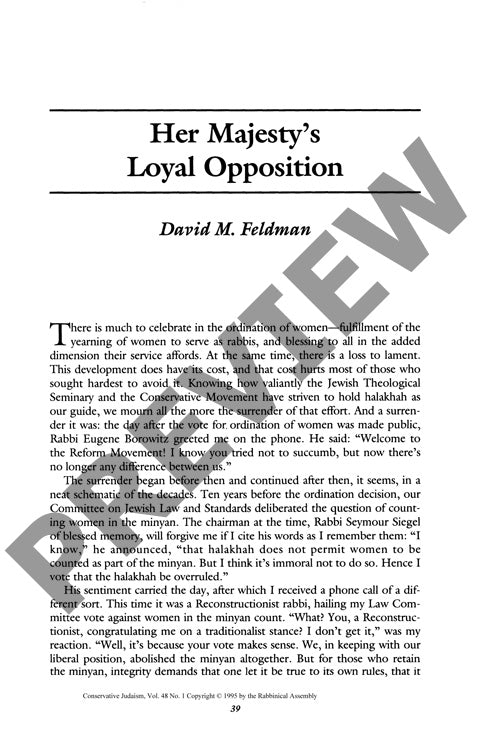Her Majestys Loyal Opposition
Couldn't load pickup availability
The ordination of women as Conservative rabbis marked a revolutionary break from halakhic authority, not the evolutionary change it was claimed to be. Through analysis of pivotal decisions from the 1970s-1990s - including women's inclusion in minyan and the watershed 1983 ordination ruling - a pattern emerges of moral imperatives increasingly overriding traditional Jewish legal process. Case studies of institutional decisions and testimony from religious leaders reveal how the Jewish Theological Seminary strategically created independent commissions to bypass potential halakhic constraints, effectively elevating contemporary moral sensibilities above established legal frameworks. This institutional maneuvering resulted in three critical losses: halakhah's binding authority, the wisdom preserved in traditional gender distinctions, and the movement's authentic commitment to pluralism. While women's ordination has enriched Conservative Judaism in many ways, acknowledging its revolutionary nature rather than maintaining the fiction of evolutionary change is essential. The movement must now actively preserve space for traditionalist perspectives within its pluralistic framework to maintain both institutional integrity and mutual respect among its diverse constituents.

More Information
-
Physical Description
-
Publication Information
Published 1995
ISBN
-
Publication Credits
David Feldman

